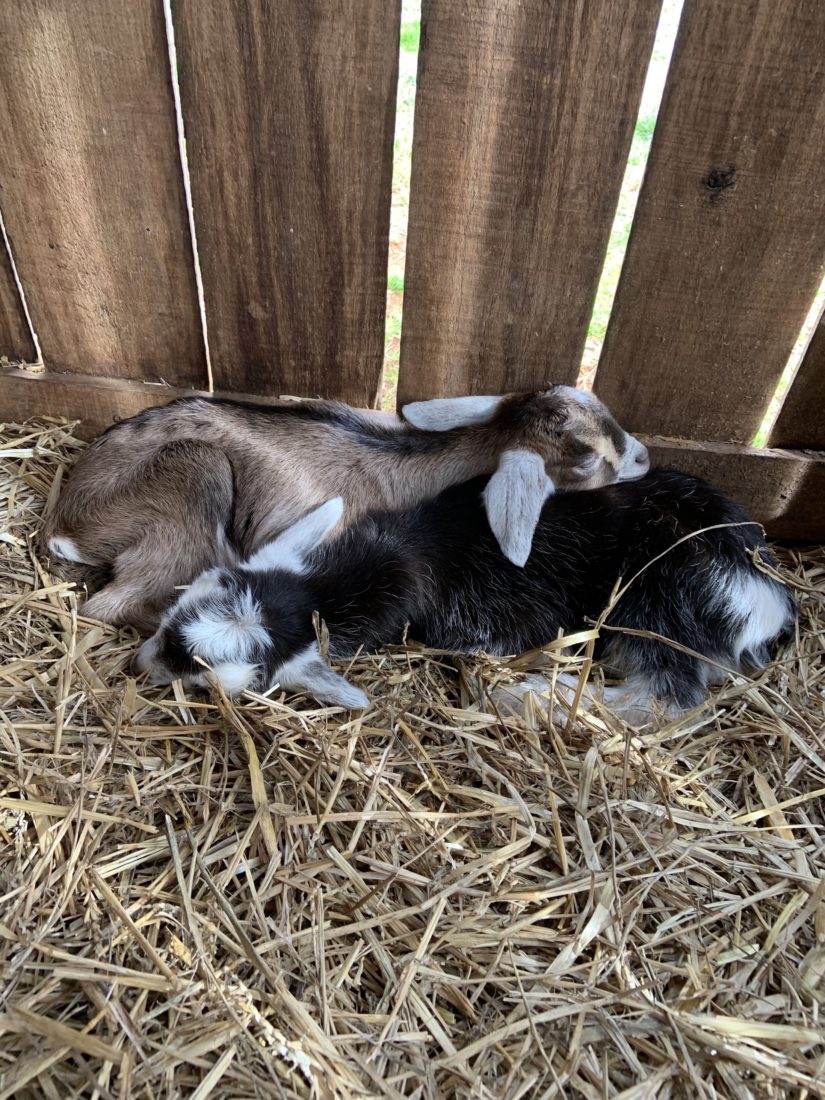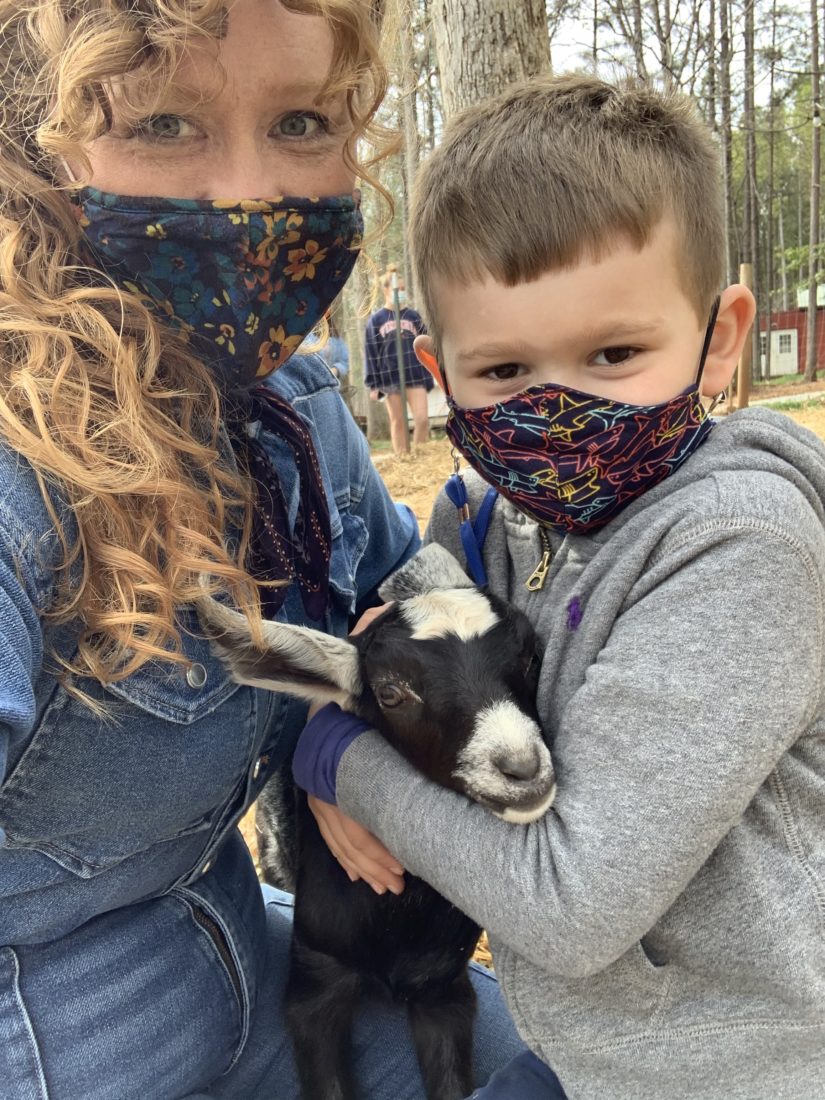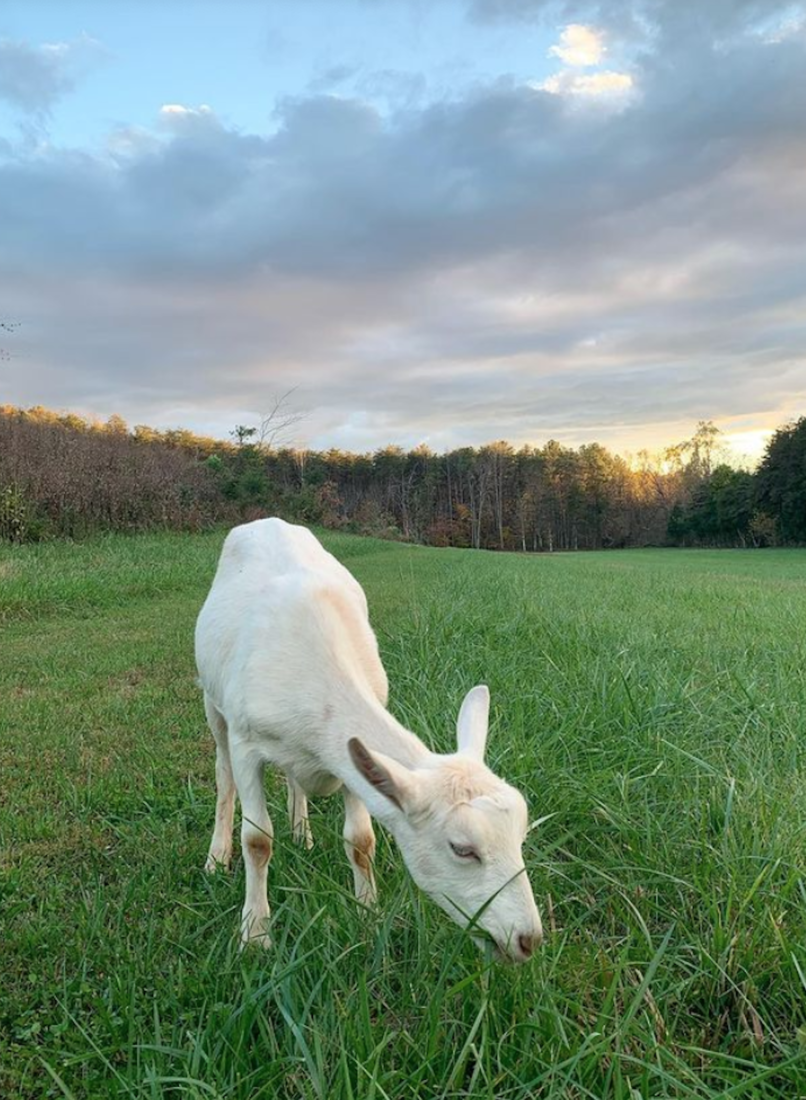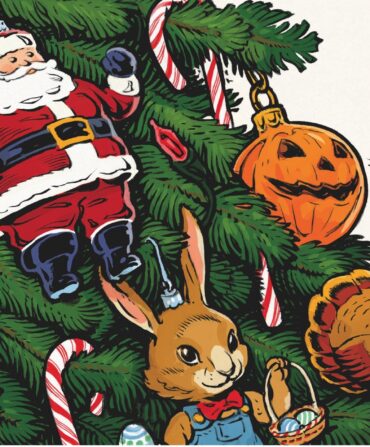S’more is a little shy. Frankly, so am I. Weighing no more than five pounds, the three-day-old baby goat eyes me suspiciously from the corner of a low-slung shed. I stare back. I didn’t grow up doing 4H; I wasn’t raised on a farm; and I certainly wasn’t a member of the FFA, so I’m not entirely sure what to do here. I put out my hand and like a puppy, S’more inches over to sniff. Then, to my surprise, she gives my finger a lick. Two steps on her wobbly hooves later and she’s in my lap, cuddled nose to nose, a warm bundle of sweet fluff. “I think she likes you, Mom,” my five-year-old son, Wells, says. She just might—mission accomplished.

It’s kid season in Central Virginia and at Caromont Farm, a goat cheese producer just south of Charlottesville, that means it’s time to send in the goat snugglers.
Each spring, up to one hundred baby goats are born on the farm, and just like any newborn, the kids need love and play and attention and nuzzles in order to thrive. So Caromont began welcoming visitors to hold its tiniest members of the herd back in 2016. “The first year we did it, we had 2,000 people sign up,” says Gail Hobbs-Page, cheesemaker and Caromont owner.
Realizing she had an agritourism opportunity as well as award-winning cheese operation on her hands, Hobbs-Page decided to stretch out the season from a one-day-only open house to February through May. For the past five years, the snugglers, as Hobbs-Page refers to them, have helped acclimate the newest members of her herd to humans, a necessity that helps ensure easy milking once they’re of age. In exchange, visitors enjoy playing with the docile beasts for an allotted one hour and forty minutes.
Until COVID struck last March. “We lost all but a handful of our restaurant business overnight,” says Hobbs-Page, who supplies her cheeses to restaurants from Charlottesville to D.C. And she quickly realized that due to social distancing restrictions, the snuggle sessions would have to end too.
“Some of these people have come every year,” she says. “I’ve watched their children grow up.”
Hobbs-Page promised all ticket holders who stuck by Caromont when the pandemic hit that they would be given priority in this year’s season, which thanks to vaccine distributions and an easing of restrictions, began a few weeks ago.
This season, there’s something different about the snugglers themselves: “People need to hug something,” Hobbs-Page says. After months avoiding physical contact, ticket holders are overjoyed to spend $14 to hang out in a goat pen. There’s a whole new appreciation for the simple wonder of affection.
“My friend who just lost her father is sitting over there,” says Hobbs-Page, who looks toward a woman quietly clutching a long-eared Nubian goat. In the field just beyond sit three women in masks cheerfully chatting while eight baby goats rest, heaped among them—the picture of contentment.
All around the farm, human kids are playing with goat kids, wrestling and rocking and frolicking. “After all of this, children need to touch something and interact and play,” Hobbs-Page says. She’s not wrong. When our allotted time is up, it takes repeated pleas of “it’s time to go” to pry my son’s fingers away from the warm embrace of a black-and-white baby named Oreo.
“Can we get some goats, Mom?” my son asks in a tone that somehow has me considering a new vocation as a goatherd. I dodge the question with the old reliable: “Ask your father.”
“We do have that back field,” I can’t believe I hear my husband saying. We stop by the farm stand, procrastinating, to buy truffle chevre. None of us really want to leave. Not after the year we’ve been through. Turns out, snuggling emotional support livestock was our family’s antidote to pandemic fatigue. Goat figure.

To learn more about Caromont’s cheeses, and to sign up for a goat snuggle session, click here.








